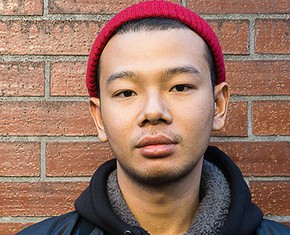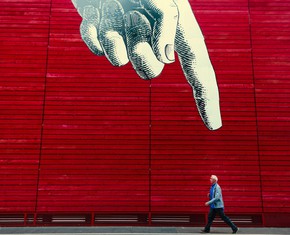The views expressed in our content reflect individual perspectives and do not represent the authoritative views of the Baha'i Faith.
Do you think public schools should all be privatized—which would theoretically let the “free market” determine their success or failure?
Recently an American state legislator posited the idea that we ought to convert our public primary schools into free-market assets, promoting the idea that, in his words, ”Successful schools will thrive” while ”schools that fail will go out of business,” thus making affluence the measure of success or failure.
This public school privatization debate has raged for decades—so how can we approach it from a spiritual perspective?
One of the primary Baha’i principles—obligatory education for all children, regardless of class, race, economic means or gender—would seem to collide with the notion of privatization of public schools. From a Baha’i perspective:
Education makes the ignorant wise, the tyrant just, promotes happiness, strengthens the mind, develops the will and makes fruitless trees of humanity fruitful. – Abdu’l-Baha, The Promulgation of Universal Peace, p.
It should be apparent that schools could thrive financially and fail academically, simply by teaching only what pleases those who financially support the school. Conversely, schools could fail financially despite academic excellence if the families being served don’t have the financial means to afford the school’s upkeep.
If there are no standards by which to judge the “product” of each school—that is, the knowledge and skills of students coming out of that school—then we will have no way of knowing which schools actually teach children useful things. We wouldn’t know until those children go out into the world as adults and either succeed or fail—a process that could take years and result in a tragic waste of talent and potential.
In his article, the state legislator asked: ”The free-market system works for cars, furniture, housing, restaurants, and to a lesser degree higher education, so why can’t it work for our primary education system?”
The question rests on a flawed premise—that the free market system actually does work for all these other things. But it doesn’t. The free-market system fails in poor rural and urban areas to even bring citizens such necessities as healthy food, jobs, or safe, affordable housing.
Given this reality, how can we suppose that it will work for primary and secondary education?
In the final analysis, our concern should be poor educational results, which have nothing to do with socialism and everything to do with our hit-or-miss, unequal approach to education. Education is not universally valued, and many things—such as poverty, lack of parental education and involvement, cultural imperatives, institutional hierarchies, etc.—increase the difficulty of creating an effective educational system.
The legislator argued: “We spend twice as much money on students in urban areas as we do in most rural and suburban areas here in [his state].”
I asked him to consider what would change if we privatized education. It’s one thing to state this as a principle, and another to install the mechanisms that might make it work. Let’s say a family living in an urban neighborhood wishes to send a child to a thriving suburban school in the area. Regardless of whether the school is public or private, that student’s education will cost more than that of a student living next door to that same school.
Why? Because that child will have to be bussed to the school, will probably need free or subsidized lunches and more help with their studies than students who do not have to travel to the school and whose parents are, themselves, better educated and able to help with homework.
In short, in a free-market school it would still be more expensive to educate kids from inner city neighborhoods than kids from more prosperous areas. The only difference is who would bear the cost. Obviously, a poor family could not, but a private school must turn a profit in order to succeed financially, so we are still stuck with the problem of how to educate those deprived of the advantages afforded by prosperous suburban and rural areas.
The article mentioned charter schools. Two of our three children attended a charter school that we chose for the academics, the virtue-based ethics, and an integrated model of education that focused on analytical thinking. Might not the solution to this problem of unequal education be to strive to make all our schools as excellent as the best charter schools or blue ribbon public schools?
I believe John Adams was right when he wrote to John Jebb in 1785 that “The whole people must take upon themselves the education of the whole people and be willing to bear the expenses of it.” The solution is not to weaken the public and universal nature of this shared resource, but to strengthen it so that it really is delivering resources to ”the whole people.”
In any democratic society, educating each child equally forms the basis for the continued viability of that society. That’s one of the main reasons the Baha’i teachings call for universal obligatory education for all children:
Baha’u’llah has announced that inasmuch as ignorance and lack of education are barriers of separation among mankind, all must receive training and instruction. Through this provision the lack of mutual understanding will be remedied and the unity of mankind furthered and advanced. Universal education is a universal law. – Abdu’l-Baha, The Promulgation of Universal Peace, p. 300.
Education is essential and all standards of training and teaching throughout the world of mankind should be brought into conformity and agreement; a universal curriculum should be established and the basis of ethics be the same. – Abdu’l-Baha, Baha’i World Faith, p. 240.
















Comments
Sign in or create an account
Continue with Googleor